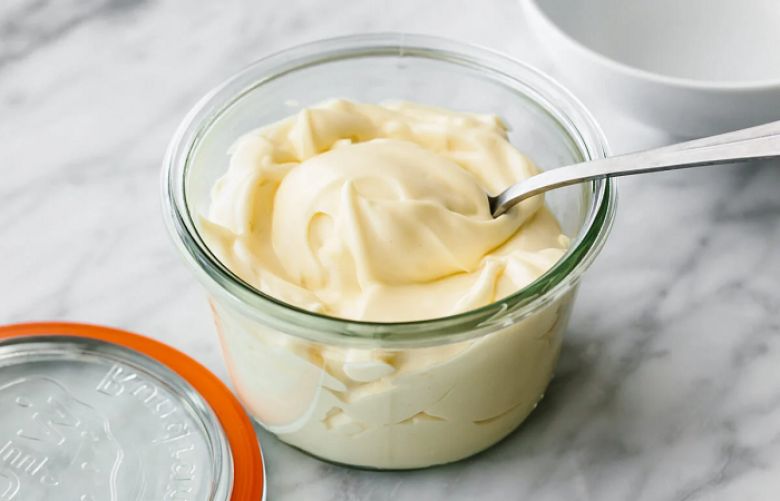Mayonnaise, the ubiquitous condiment, often finds itself entangled in a love-hate relationship among Americans. Despite being a staple in numerous dishes, concerns about its calorie density, high-fat content, and potential bacterial risks have led to skepticism.
This article endeavors to unravel the science behind mayonnaise, explore its health aspects, address misconceptions, and guide readers in making informed choices regarding this culinary delight. Mayonnaise is an alchemical blend of oil, egg yolk, an acidic component (like lemon juice or vinegar), and occasionally mustard. The magic lies in emulsion, a process uniting water-loving and oil-loving components.
The emulsifier, often the egg yolk, binds these disparate elements, creating a stable, creamy concoction. Commercial brands may employ different emulsifiers and stabilizers, while homemade versions use lecithin from egg yolk and mustard.
Is Mayonnaise A Healthy Indulgence?
Contrary to its reputation, mayonnaise boasts health-promoting nutrients like vitamin E and vitamin K. It can also incorporate healthy fats such as omega-3 fatty acids, beneficial for the brain, heart, and skin. While its high-fat and calorie-dense nature (100 calories per tablespoon) may be a concern for low-fat or low-calorie diets, those on low-carb or ketogenic diets can enjoy it more liberally. The key lies in mindful consumption aligned with individual nutritional goals.
Decoding The Oil Dilemma
Mayonnaise's primary fat source, the oil, significantly influences its healthfulness. Commercially, soy oil dominates the U.S. market, raising concerns due to its high omega-6 fats. Homemade mayonnaise allows flexibility in oil choice, permitting the use of healthier options like olive or avocado oil. The selection of oil emerges as a critical factor in defining the nutritional profile of this condiment.

